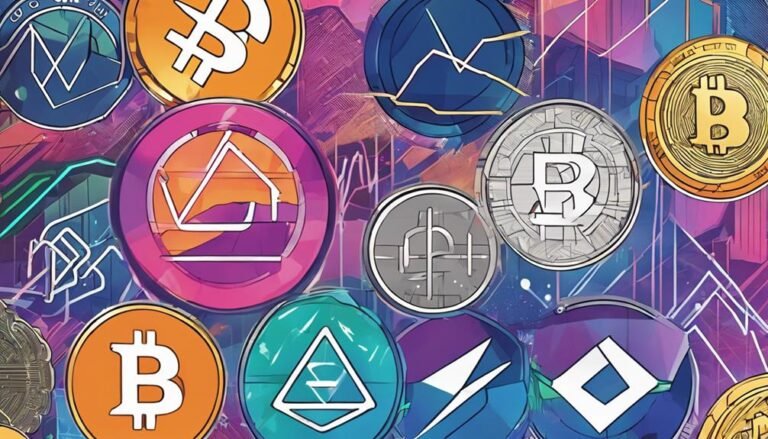What is a Certificate in Blockchain?
Are you interested in blockchain technology but not sure where to start? You’re not alone. With its complex jargon and fast-paced evolution, the blockchain network can feel overwhelming at first. That’s why more people are turning to training and certification programs to get a clear, structured understanding of the crypto space and the tech behind Bitcoin, smart contracts, and digital security.
A blockchain certificate helps you build real knowledge and gain credibility. But it’s more than just filling out the online application – choosing the right one needs careful consideration.
In this article, we’ll break down what blockchain is, why certifications matter, and how they can shape your future in this growing industry.
Blockchain Fundamentals
The world of blockchain is packed with potential, but for beginners, it often feels like stepping into a foreign language. Before diving deeper, let’s get familiar with the foundational terms that shape this rapidly evolving technology.
Blockchain Technology
Blockchain technology is a decentralized, distributed ledger system that allows for transparent and secure data sharing within a network. It stores information in blocks linked together in a chain, ensuring that once recorded, transactions cannot be altered without network consensus. This technology is crucial for creating a rigid record of transactions, making it ideal for applications like cryptocurrency and supply chain management.
Smart Contracts
Smart contracts are self-executing programs stored on a blockchain that automate the enforcement of agreements based on predefined conditions. They operate using “if/when…then…” logic, ensuring that all parties can trust the outcome without needing intermediaries. Smart contracts are used to streamline workflows, automate payments, and enhance transparency in various industries.
Blockchain Nodes
Blockchain nodes are devices within a network that maintain and validate the distributed ledger. They ensure the integrity of the blockchain by verifying transactions and adding new ones to the previous block. Nodes communicate in a peer-to-peer network, with different types like full nodes and light nodes serving distinct roles in maintaining the network’s health.
Proof of Work
Proof of work (PoW) is a consensus mechanism used in blockchain networks to validate transactions and secure the network. It requires significant computational effort to solve complex puzzles, which helps prevent manipulation – by making it difficult to alter the blockchain. PoW is widely used in cryptocurrencies like Bitcoin, though it has faced criticism for its energy consumption.
Digital Certificates
Digital certifications are electronic documents that verify the authenticity of a public key used for encrypting online assets. They utilize public key infrastructure (PKI) to ensure secure sharing over the internet. Digital certificates are issued by trusted certificate authorities and are essential for verifying identities and securing connections to networks or websites.
What are Blockchain Certifications
Blockchain certifications are credentials awarded to individuals who complete formal training programs in blockchain technology. These certifications validate an individual’s knowledge and skills in understanding and implementing blockchain solutions, making them high-demand assets in the industry.
Popular blockchain certifications include the Certified Blockchain Expert (CBE), Certified Blockchain Solution Architect (CBSA), and Certified Ethereum Developer (CED). These programs cover various aspects of blockchain, including development, architecture, and business applications.
Benefits of Holding a Blockchain Certificate
Like any specialized training, certifications hold real value. Earning one can open up new opportunities, in your career and beyond.
Jobs Around Blockchain Technology with a Blockchain Certificate
Acquiring a blockchain certification opens up various technology job opportunities across industries. Roles include blockchain developers, solution architects, project managers, and legal consultants.
These certifications are valuable in sectors like blockchain development, finance, healthcare, supply chain, project management, and cybersecurity, where blockchain technology is increasingly applied.
Certifications such as the Certified Enterprise Blockchain Professional (CEBP) and Certified Blockchain Security Expert (CBSE) are particularly sought after for their focus on enterprise solutions and network security.
Financial Freedom
The knowledge gained from blockchain certifications empowers people to manage their financial transactions securely and independently. This is achieved through understanding blockchain concepts (non-fungible tokens, nodes, data structures, etc), technology, and cryptocurrencies, which allow for decentralized and secure financial management.
By avoiding traditional banking intermediaries, you can reduce transaction fees and enhance privacy. This independence also allows for more control over personal financial data and transactions. In short, you can be your own bank.
How to prepare for blockchain certification exams
Preparing for blockchain certification exams involves several steps:
Study Official Materials
Review the goals of the certificate program, prerequisites, and course material provided by the certifying organization.
Practice with Real-World Scenarios
Besides learning the fundamentals, engage with practical use cases to understand how blockchain concepts apply in real-world settings.
Use Practice Tests
Take part in simulated exams to familiarize yourself with the blockchain certificate program, exam format, and identify areas for improvement.
Stay Updated
Attend webinars and discussions to stay current with the latest blockchain platforms and technology developments.
Artificial Intelligence and Blockchain
Artificial intelligence (AI) is increasingly being integrated with blockchain technology to enhance data security, transparency, and efficiency. This integration allows for the creation of intelligent automated decision-making blockchain systems that provide highly reliable outputs based on immutable data.
AI technology can rapidly analyze vast amounts of data, while blockchain ensures the integrity and trustworthiness of this data, making it ideal for applications in finance, healthcare, and smart cities.
To get the best of both worlds (that may soon become one), you should also spend time exploring AI and its blockchain applications. Choose a blockchain certificate program that will provide you with a comprehensive understanding of Bitcoin, blockchain, and its correlation to AI. This will give you the edge, as the blockchain AI market is projected to grow 24.06% each year.
Beyond Bitcoin: A Look at Other Cryptocurrencies Making an Impact
Although over 9,000 cryptocurrencies circulated in 2023, only a handful have real staying power. With most being inactive or short-lived, the top 20 dominate nearly 90% of the market.
Bitcoin (BTC) remains the most recognized and dominant blockchain cryptocurrency, but several others have carved out strong positions:
- Ethereum (ETH) powers decentralized apps and smart contracts, expanding blockchain utility beyond currency.
- Tether (USDT) and USD Coin (USDC) are stablecoins pegged to fiat currencies, offering price stability.
- XRP (XRP) facilitates fast currency exchanges on the Ripple network.
- Binance Coin (BNB) fuels transactions on the Binance platform.
- Dogecoin (DOGE) gained popularity through internet culture and community support.
- Cardano (ADA) emphasizes energy efficiency and scalability.
- Litecoin (LTC) enables quicker transactions than Bitcoin.
- Monero (XMR) offers enhanced privacy through anonymous transactions.
Frequently Asked Questions
How does blockchain work?
Blockchain technology works by recording data in a series of linked blocks across a decentralized network of computers (called nodes). When a transaction occurs, it’s verified by the network through a consensus mechanism like proof of work. Once confirmed, the transaction is added to a block, which is then cryptographically linked to the previous one. This creates a secure, unchangeable chain – and thus the name blockchain. The structure of the blockchain technology ensures transparency, prevents tampering, and removes the need for a central authority.
What are the advantages of the blockchain system
The advantages of blockchain include decentralized technology, which reduces reliance on central authorities; immutability, ensuring integrity; and consensus mechanisms, which validate transactions securely. Blockchain architecture also offers cost reductions by eliminating intermediaries, efficient transactions that are processed continuously, and accuracy through automated verification processes.
What are digital signatures?
Digital signatures are cryptographic techniques that verify the authenticity and integrity of digital messages or documents. They serve as the digital equivalent of handwritten signatures, ensuring that the dataset originates from the claimed sender and has not been altered. They rely on public-key cryptography, using a private key for signing and a public key for verification. In blockchain technology, they are crucial for authenticating transactions, proving ownership, and preventing unauthorized spending, thereby enhancing security and trust in decentralized networks.
What are smart contracts?
Smart contracts are self-executing programs that run on a distributed ledger, like a blockchain. They automatically carry out actions (such as releasing payments or verifying information) when specific conditions are met.
What is a Blockchain Council?
The Blockchain Council is a global group of technology experts and professionals focused on promoting research, education, and practical applications of blockchain technology. It offers industry-recognized certification programs, training courses, and resources to help individuals build careers in blockchain, cryptocurrency, and related fields like smart contracts, Web3, and NFTs.
Do blockchain developers need certificates?
You don’t need a certificate to become a blockchain developer, but it can be a valuable asset, especially if you’re new to the field or transitioning from a different tech background. A blockchain certification can help you build foundational knowledge, prove your skills to employers, and get hands-on experience with tools like smart contracts, distributed ledgers, and decentralized app development. While some developers learn through self-study and open-source projects, a certificate program can fast-track your learning and boost your credibility, particularly in competitive job markets or project-based roles.







